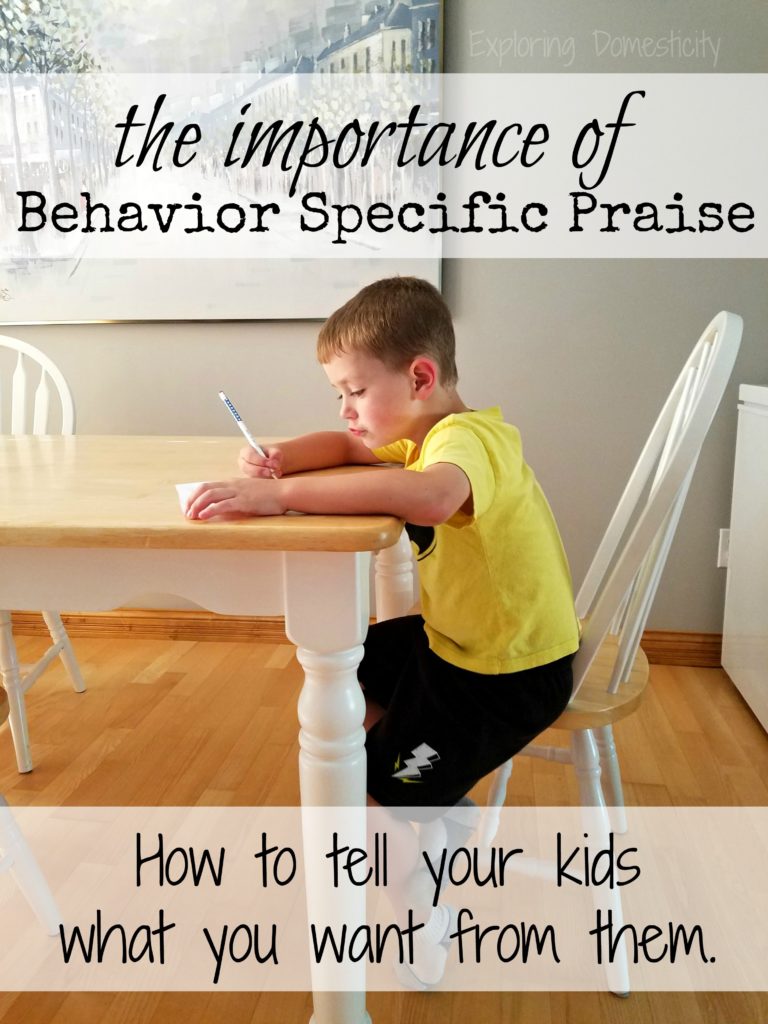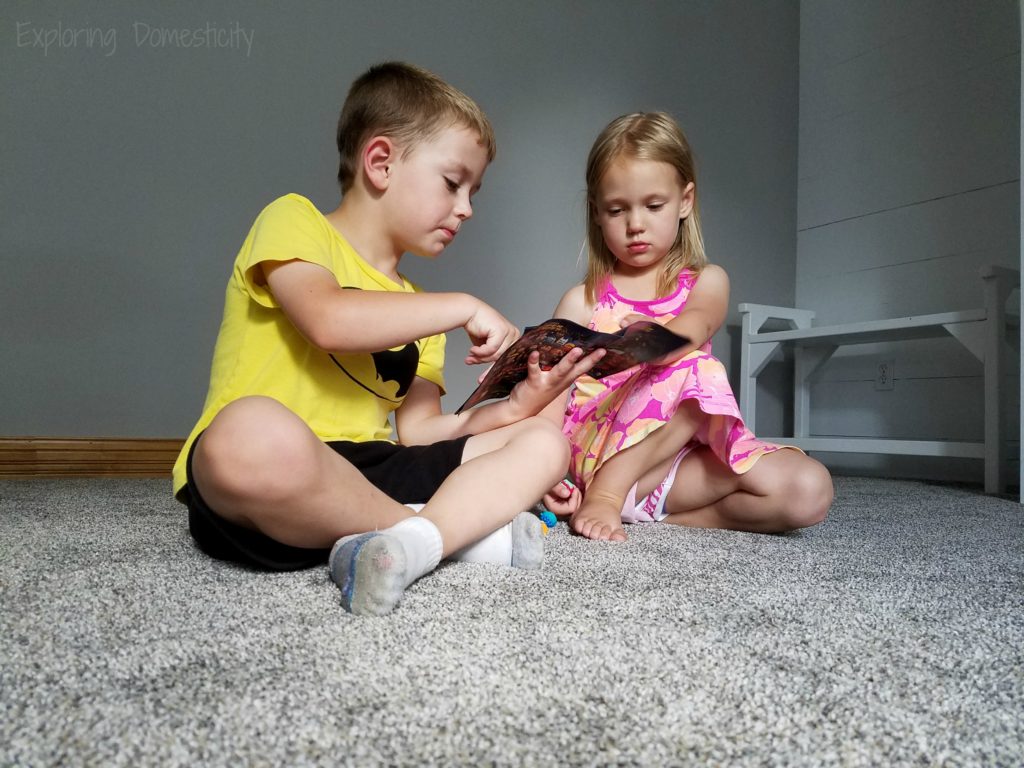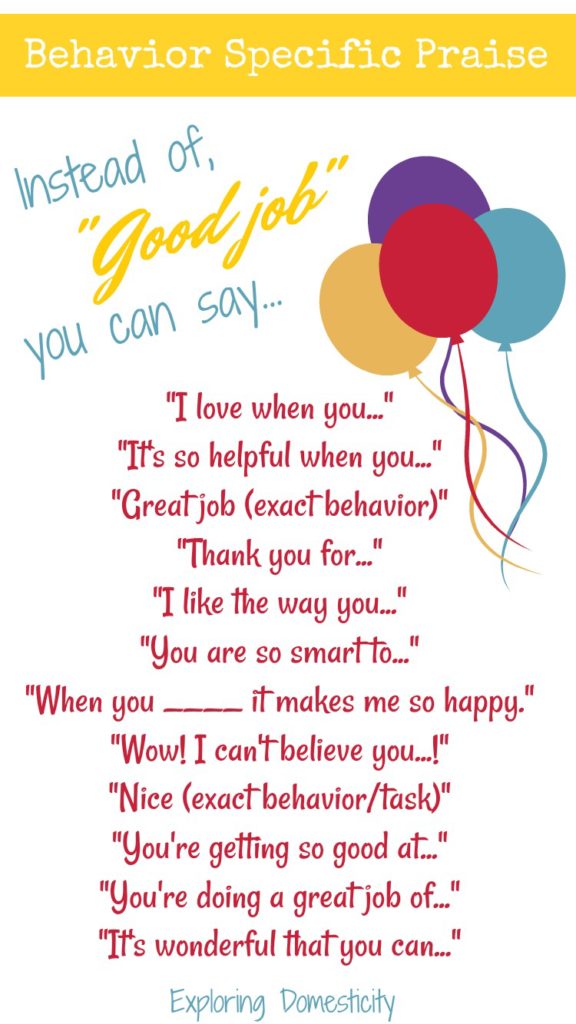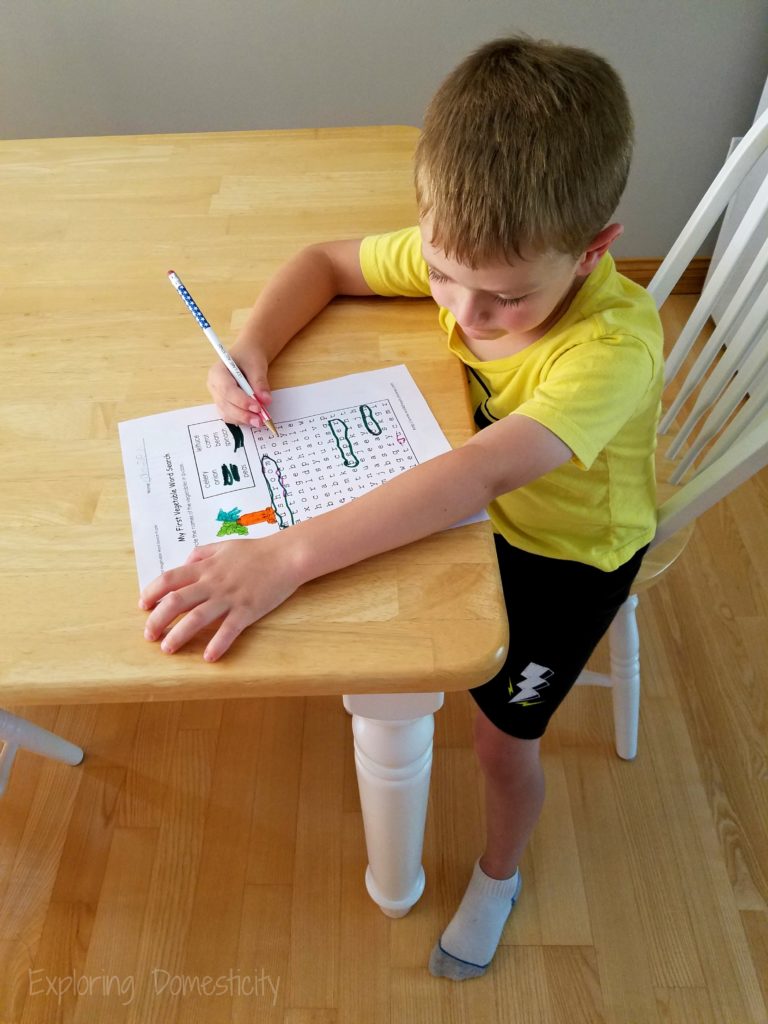How do our kids know what we expect from them if we don’t tell them? Behavior specific praise is a way for parents to catch children being good and encourage them to repeat the behavior in the future.
We all know the importance of praising our children.
I don’t know about you, but I catch myself sounding like a broken record of, “good job,” “great!,” and “nice work” more often than I’d like.
How are kids supposed to know what exactly we want from them if we don’t tell them?
“Good job” and other generic praise doesn’t specify what behavior we are interested in seeing more of. Something along the lines of, “I love how hard you worked to figure that out” is definitely more effective.
While any praise is good, behavior-specific praise helps the child identify exactly what behavior pleases you.
As parents, this extra step helps us connect and appreciate our children. It also allows us to catch them being good – which is so important, but another topic! – and do what we can to see that those good behaviors continue in the future.
Behavior Specific Praise Examples
- “I love how you…”
- “It is so helpful when you…”
- “Great job (exact behavior)“
- “Thank you for…”
- “I like the way you…”
- “You are so smart to…”
- “When you ____ it makes me so happy.”
- “Wow! I can’t believe you…!”
- “Nice (exact behavior/task)“
- “You’re getting so good at…”
- “You’re doing a great job of…”
- “It’s wonderful that you can…”
Anytime you can connect your praise with the exact behavior your child is doing, it increases the chances that they will increase that behavior. Whether it’s a task or chore at home, something related to schoolwork, or a quality or trait they are demonstrating, they are more likely to acknowledge and repeat the behavior when you recognize it and give them praise.
The more clear we can make our praise as parents, the more our kids will learn and recognize the things we are hoping to teach them.
In my life before kids, I was a lead behavioral therapist for kiddos with autism and got my MS in Behavior Analysis and Therapy. This is a topic that was discussed often and a general rule of thumb when working with kiddos with autism. It’s one of the things that I have definitely held onto as I became a parent.
Do you use behavior specific praise with your kiddos?
More Like This

















Only registered users can comment.